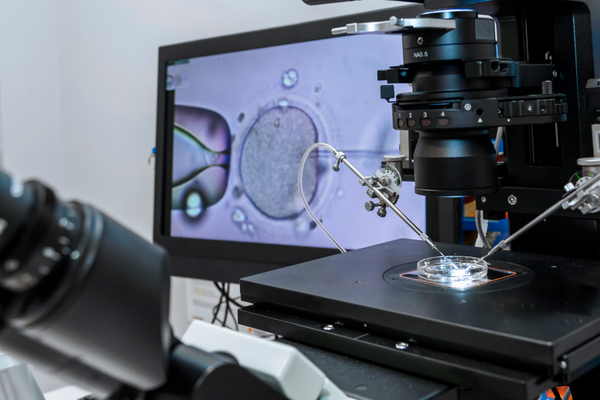Published Jul 28, 2023
Top Considerations before becoming a Sperm Donor
Couples who want to fulfill their dream of starting a family rely mostly on egg and sperm donors, among other methods. So, deciding to become a sperm donor is a truly noble act. Before you become a sperm donor, there are certain things you have to understand and different factors

Couples who want to fulfill their dream of starting a family rely mostly on egg and sperm donors, among other methods. So, deciding to become a sperm donor is a truly noble act. Before you become a sperm donor, there are certain things you have to understand and different factors you must consider.
Legal implications, health risks, and emotional factors are involved in the entire process, so in this article, we will be covering different aspects you need to consider before you choose to become a sperm donor.
Eligibility and Screening Criteria
There are rigorous processes involved in sperm donation; from the screening to the medical evaluations, and the physical examinations, every process is there to confirm whether you are healthy enough to donate. The sperm bank will check for genetic disorders, infectious diseases, and the overall health of your reproductive system.
They will also carry out semen analysis, an assessment of your medical history, and psychological evaluations to check if you are emotionally ready to participate in the process. This would determine if you would be selected as a successful sperm donor.
The Reputation of the Sperm Bank
There are many sperm banks out there, but not all are trustworthy or reliable. So, you need to research and find out If the sperm bank adheres to all the industry standards. Only work with sperm banks or fertility organizations that prioritize your well-being and that of other donors.
Evaluate the success rate and the reputation of the sperm bank before you begin the donation process with them. This is important because the success of your donation depends on this completely. It's okay to look out for their reviews and seek advice from other professionals who are conversant with the process.
Consent and Legal Considerations
A comprehensive knowledge of the legal implications of becoming a sperm donor is fundamental. Different laws govern this process in different states, so you must ensure that you are familiar with the rules guiding sperm donation in your state or jurisdiction.
Additionally, we advise that you consult with legal professionals to learn and understand your responsibilities and rights as a donor. There have to be legally binding agreements and consent statements so that all the parties involved will be legally protected.
The Health Risks Involved
There are potential health risks involved in the whole sperm donation process, and they are infections, discomfort, and bruising during collection. If you have any particular concerns, you should discuss them with a trusted medical professional so that they can advise you accordingly.
Although the risks are minimal, they could pose different challenges for different people, so it is necessary to ensure that all the precautions are taken for minimal risks to occur.
Genetics
You can pass down genetic traits to the potential offspring, and this can include some hereditary diseases. This is why a medical evaluation of your family medical history is required before the facility accepts you as a donor.
You need to be open about your family medical history and provide all the necessary information to determine if you would be accepted as a donor.
Future Implications of becoming a sperm donor
As a sperm donor, they will present you with the option to either donate anonymously or disclose your identity. Some donors prefer to stay anonymous, while others do not mind if the sperm bank reveals their identity, as this will allow the potential child to contact them in the future.
So, you must consider your immediate family, personal values, and the potential long-term implications of staying anonymous or disclosing your identity.
The Psychological and Emotional Impact
There are psychological and emotional implications of donating sperm, so preparing for this aspect of the donation process is essential. Various emotions like pride, feelings of attachment, and altruism can pop up during the donation process.
You can prepare for this by going for counseling and requesting psychological support before and after the donation process. This can help you navigate the emotions involved and prepare you mentally before, during, and after the donation process.
All of these factors are necessary considerations if you want to become a sperm donor because your donation's entire success or failure depends on them. Carefully consider these things so you can make an informed decision down the line. Let us help you on your Jurnee!



